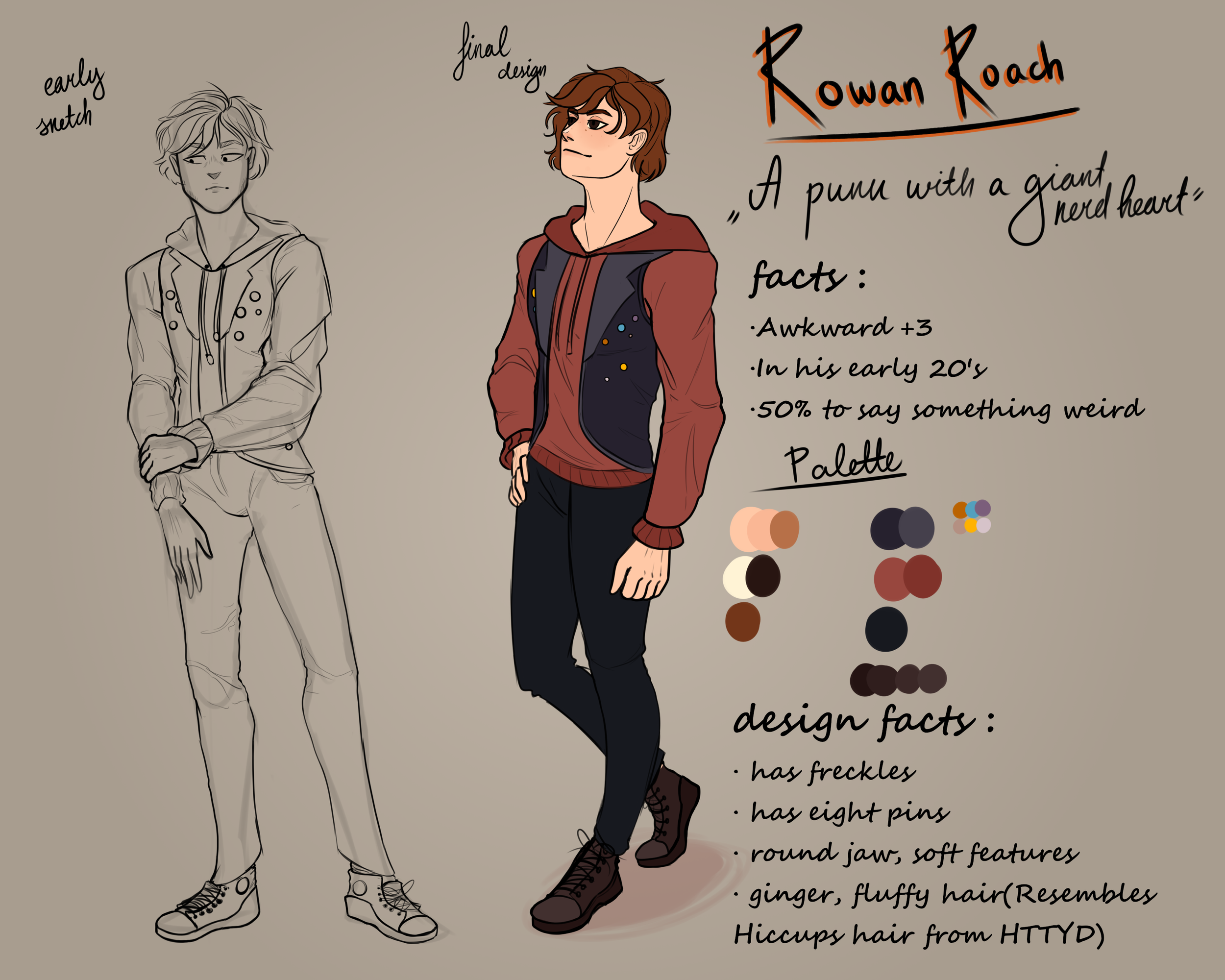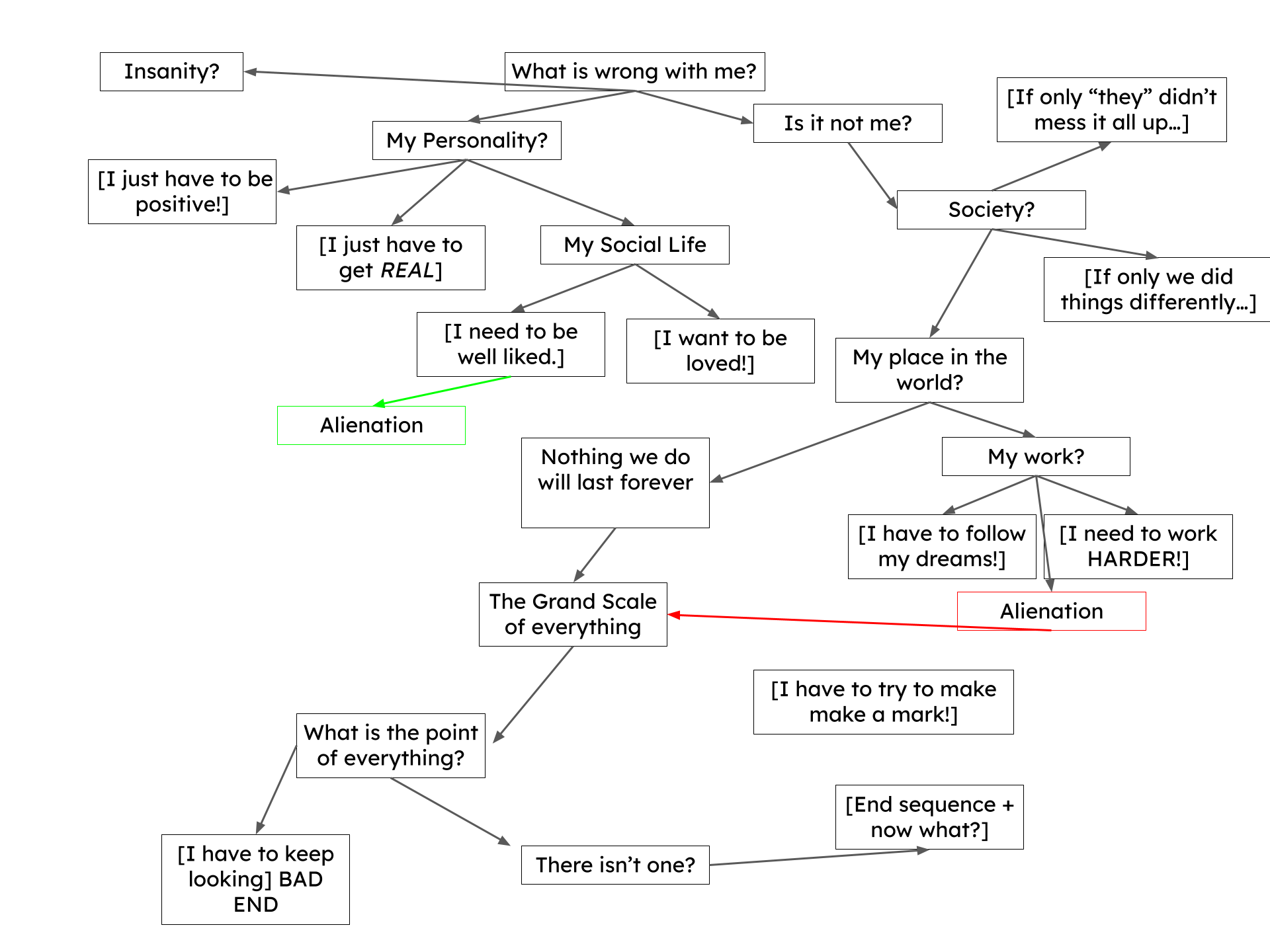
Surreality check
A 3D Absurdist visual novel about going to Therapy with the Universe.
Producer, writer, designer and programmer.
Lead a team of seven developers as producer and chairman.
Essentially wrote a novel's worth of text, primarily dialogue, of consistent quality and in reference to character sheets.
Designed all of the game’s core systems and mechanics.






High concept and design goals.
Not entirely dissimilar to Zorpon, the high concept of Surreality check is to create an engaging absurdist game, only with the caveat of a greater emphasize on critiques of absurdity all the while offering an alternative to the basis of existential revolt as some sort of solution to the absurdity of life. Beyond this – with the help of a very talented team of artists and musicians, a semi visual novel style of gameplay was used with a focus on a character driven story.
Mechanics and Story
In Surreality check, we follow Rowan Roach through his job insecurity fueled existential crises wherein we explore his introspective attempts to discover what’s “wrong with me” through therapy with the Universe. With an overarching vision of a character driven approach in mind, rather than exploring the absurd through a character’s conflict with the environment or the world as a whole directly, the character of Dr. Universe was created as a stand-in for the main character’s view of the world itself.
As a character, Dr Universe is a sarcastic, mean-spirited and deliberately misleading main character who (in the eyes of Roach) is regardless of an accurate depiction of his view of the outside world and its little cruelties. Roach also encounters a wide variety of other uniquely flavorful characters who represent his anxieties (and occasional sensibilities) personified.
Importantly, though the characters themselves represent different aspects of Roach, they are first and foremost characters and not mere stand-ins. Rather, each character contains some small part of Roach’s personality heightened to the absurd as their primary motivation. This character and motivation driven character design avoids the common pitfall of many works which primarily use characters as stand-ins (e.g. Erika in The Reluctant Fundamentalist), wherein a character becomes soulless without any real motivations of their own. Even the characterization of Dr. Universe as an all-powerful force of nature is tempered through the perspective of Roach.
The second major design challenge of the game was gamifying something as nebulous and uniquely interactive as therapy. With a quite standard choose your own adventure visual novel system as the base for dialogue interaction, I created a Choose your own therapy (CYOT) system to link these separate interactions with one another. In every single therapy session, the player would have a limited amount of time to first spend a limited amount of time units progressing down a therapy tree structured as a spider diagram, wherein they could choose what conversational topic to bring up which in turn leads to other topics. Once all of their time units have elapsed, players are then presented with a series of conclusions (previously invisible to them during the therapy phase) which serve as the sort of homework one would usually receive in traditional cognitive behavioral therapy. The only caveat to the homework being is that they ultimately end in failure, with Dr. Universe mocking Roach in his attempts in his post-session recordings.
The structure of the CYOT system itself is primarily geared towards encouraging exploration through multiple playthroughs, something heightened by other systems of exploration in the game; mainly a time limited distraction system which prevents the player from discovering and going through the arcs of all characters on their first playthrough without significant consideration. The CYOT time limit in addition to the greater 3 day timer throughout the entire game allows the player to easily cycle between different types of content to limit the reading fatigue that sometimes comes with visual novels, regardless of a player’s experience with such games.



